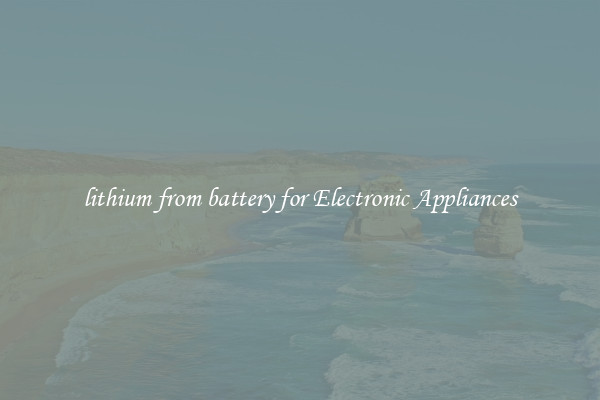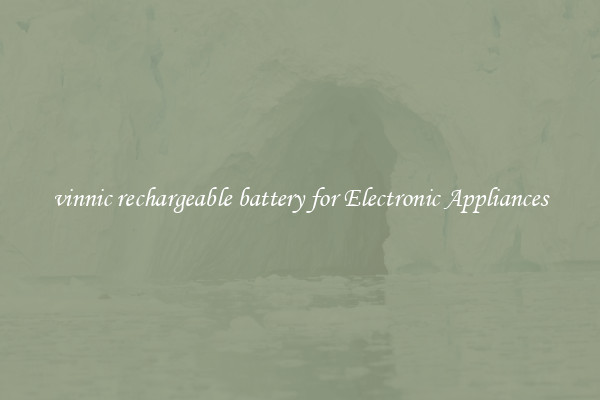lithium from battery for Electronic Appliances
Lithium from Battery: Powering Electronic Appliances

As technology continues to advance, the importance of portable and efficient energy storage has become increasingly evident. One of the most widely used solutions in this domain is lithium-ion batteries. These compact and lightweight powerhouses have revolutionized the world of electronic appliances, making our lives more convenient and reducing our environmental footprint.
Lithium is a crucial element found within these batteries, playing a pivotal role in powering our electronic devices. Highly reactive and lightweight, lithium allows for high energy density, making it ideal for various applications. From smartphones and laptops to electric vehicles and renewable energy storage systems, lithium-ion batteries are the go-to option for portable and rechargeable power storage.
The properties of lithium make it an excellent choice for battery production. It has the ability to store a large amount of energy in a small volume, giving electronic devices an extended period of power usage. Compared to conventional batteries, a lithium-ion battery has a higher energy density, which means it can store more energy per unit volume, making it more efficient and long-lasting.
Furthermore, lithium-ion batteries have a longer lifespan as they can undergo numerous charge and discharge cycles without significant capacity loss. This attribute is particularly crucial for electronic appliances as it ensures a longer operational life, reducing the need for frequent battery replacements. This not only saves money but also reduces e-waste, contributing to a more sustainable future.
Lithium's lightweight nature also plays a significant role in the device's overall portability. Since electronic appliances are designed to be compact and easy to carry, the lightness of lithium-ion batteries makes them the perfect fit. The combination of high energy density and lightweight properties ensures that our smartphones, tablets, and smartwatches remain slim and lightweight, facilitating convenience and ease of use.
As we move towards a greener future, lithium holds even more promise. With the rise of renewable energy sources such as solar and wind, the need for energy storage systems is on the rise. Lithium-ion batteries are instrumental in storing excess energy generated by these sources for later use, aiding in the transition towards a cleaner and more sustainable energy grid.
However, it is essential to address the environmental concerns associated with the mining and disposal of lithium-ion batteries. Responsible sourcing and recycling practices are crucial to mitigate the environmental impact. Companies involved in the production and disposal of lithium batteries must prioritize sustainable practices, from ethical mining to proper recycling facilities.
In conclusion, lithium from batteries is an indispensable component of electronic appliances. Its ability to store and provide portable power efficiently has transformed the way we use and carry our devices. With the continued development of lithium-ion battery technology, we can expect even more innovative and sustainable solutions, contributing to a cleaner and greener future.

View details

View details

View details

View details








